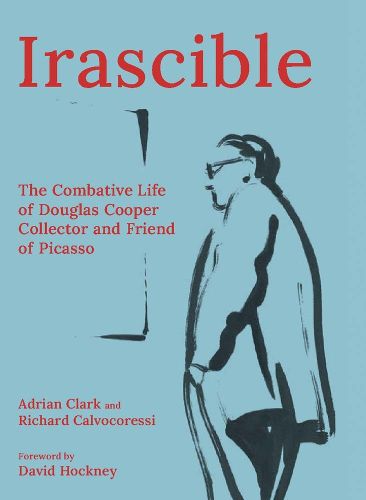Readings Newsletter
Become a Readings Member to make your shopping experience even easier.
Sign in or sign up for free!
You’re not far away from qualifying for FREE standard shipping within Australia
You’ve qualified for FREE standard shipping within Australia
The cart is loading…






A pioneering collector of Cubist art, the English art historian and critic Douglas Cooper was one of the most important - and divisive - figures in the international art world of the 20th century.
Born into a wealthy family whose money was made in the 19th century in Australia, Cooper (1911-84) built up much of his collection of works by Picasso, Braque, Gris and Leger in the 1930s. He also trained himself to become a respected art historian, his reputation as a scholar resting largely on his catalogue of the Courtauld Collection (1954) and his catalogue raisonne of Juan Gris (1977). He also organised exhibitions of Gauguin, Braque and two major displays of Cubism. The second of these, The Essential Cubism, co-curated with Gary Tinterow and held at the Tate in 1983, was one of the most remarkable accumulations of Cubist painting, sculpture and drawings ever brought together.
Based on extensive research and packed with new material and fresh interpretations, Irascible focuses attention on Cooper's colourful life and significant accomplishments: his financing and directorship of the Mayor Gallery in London as a young man in the 1930s, when he became close to artists such as Francis Bacon, Paul Nash, Henry Moore, Paul Klee, Joan Miro, and Max Ernst; his wartime experiences as an ambulance driver in support of the collapsing French army in 1940; his job as a senior Monuments Man in charge of tracking down Nazi-looted art in Switzerland; his move to the south of France in the early 1950s, taking his collection with him; and his legendary feuds with leading figures and institutions in the British art world. This book is also the definitive account of Cooper's collecting, art dealing, writing and curating.
$9.00 standard shipping within Australia
FREE standard shipping within Australia for orders over $100.00
Express & International shipping calculated at checkout
A pioneering collector of Cubist art, the English art historian and critic Douglas Cooper was one of the most important - and divisive - figures in the international art world of the 20th century.
Born into a wealthy family whose money was made in the 19th century in Australia, Cooper (1911-84) built up much of his collection of works by Picasso, Braque, Gris and Leger in the 1930s. He also trained himself to become a respected art historian, his reputation as a scholar resting largely on his catalogue of the Courtauld Collection (1954) and his catalogue raisonne of Juan Gris (1977). He also organised exhibitions of Gauguin, Braque and two major displays of Cubism. The second of these, The Essential Cubism, co-curated with Gary Tinterow and held at the Tate in 1983, was one of the most remarkable accumulations of Cubist painting, sculpture and drawings ever brought together.
Based on extensive research and packed with new material and fresh interpretations, Irascible focuses attention on Cooper's colourful life and significant accomplishments: his financing and directorship of the Mayor Gallery in London as a young man in the 1930s, when he became close to artists such as Francis Bacon, Paul Nash, Henry Moore, Paul Klee, Joan Miro, and Max Ernst; his wartime experiences as an ambulance driver in support of the collapsing French army in 1940; his job as a senior Monuments Man in charge of tracking down Nazi-looted art in Switzerland; his move to the south of France in the early 1950s, taking his collection with him; and his legendary feuds with leading figures and institutions in the British art world. This book is also the definitive account of Cooper's collecting, art dealing, writing and curating.